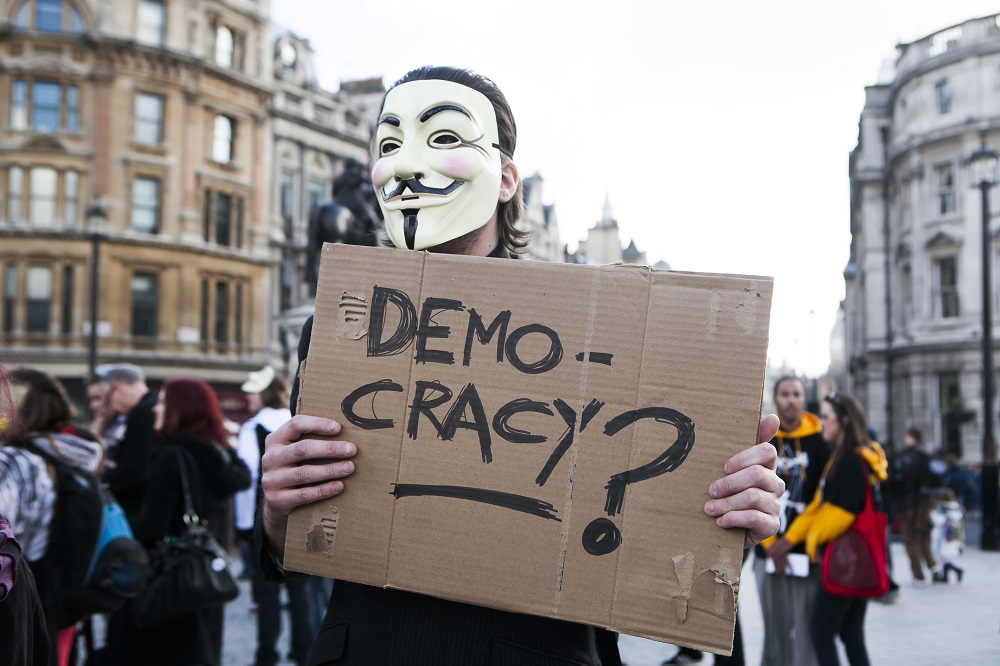Freedom of speech and the right
to protest are protected

Freedom of speech and the right to protest are the lifeblood of a healthy democracy.
A healthy society contains a diversity of views, lifestyles, and beliefs. Individuals need to be able to freely discuss political issues, criticise their government, and express dissenting views – including assembling to challenge the government of the day – without censorship or reprisal. Both of these rights are enshrined in the Human Rights Act, which gives statutory force to the European Convention on Human Rights.
UK protest rights have been seriously eroded by a series of draconian pieces of legislation, including the Police, Crime, Sentencing and Courts Act 2022, the Public Order Act 2023, and even more measures proposed in the Crime and Policing Bill. These have had a chilling effect on campaigners fearful of reprisal. This is even more the case when the law is coupled with the way the police have interpreted the law and used technology, such as AI-driven facial recognition, to police protest.
In the UK, as in other democracies, freedom of expression is under threat in new and complex ways, caught up in the battleground between different conceptions of offence and harm, debates around cancel culture, no platforming, ‘safe space’, online harms and academic freedom. Suppressing free speech is a core part of the authoritarian playbook, while at the same time invoked by populists in order to tap into resentment against elites, ‘wokeness’, and vulnerable communities such as migrants.
Funding areas may include:
- Protecting the rights to freedom of assembly and expression, eg by repealing recent legislation that restricts democratic rights, and/or building knowledge of protest rights and the capacity to defend them.
- Ensuring the policing of protests is limited, proportionate, consistent and
accountable, including the way the police and security services use technology to police protest.
- Rebuilding a democratic and widely-accepted consensus around freedom of speech, including in academia, that robustly defends freedom of expression while protecting people from serious harms, such as incitement to violence, defamation, and fear of genuine intent to harm individuals.
- Addressing challenges to free speech in the digital age including issues related to online platforms and social media, and online harms (see Our priorities: 4 Disinformation)
- Ending the use of legal devices (eg Strategic Lawsuits Against Public Participation) that are used to silence and prevent scrutiny and accountability.
Image: Elena Rostunova / Shutterstock.com
